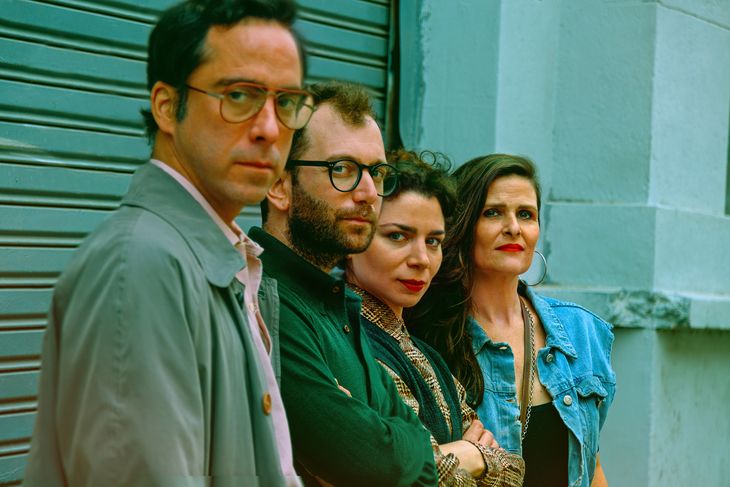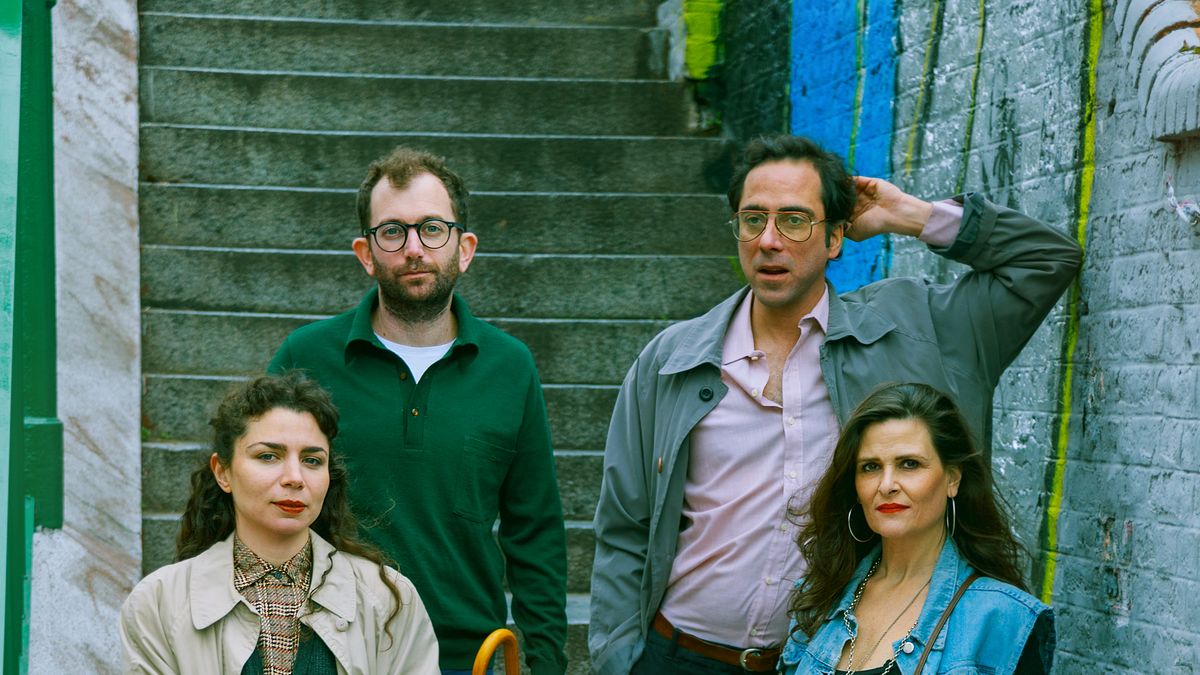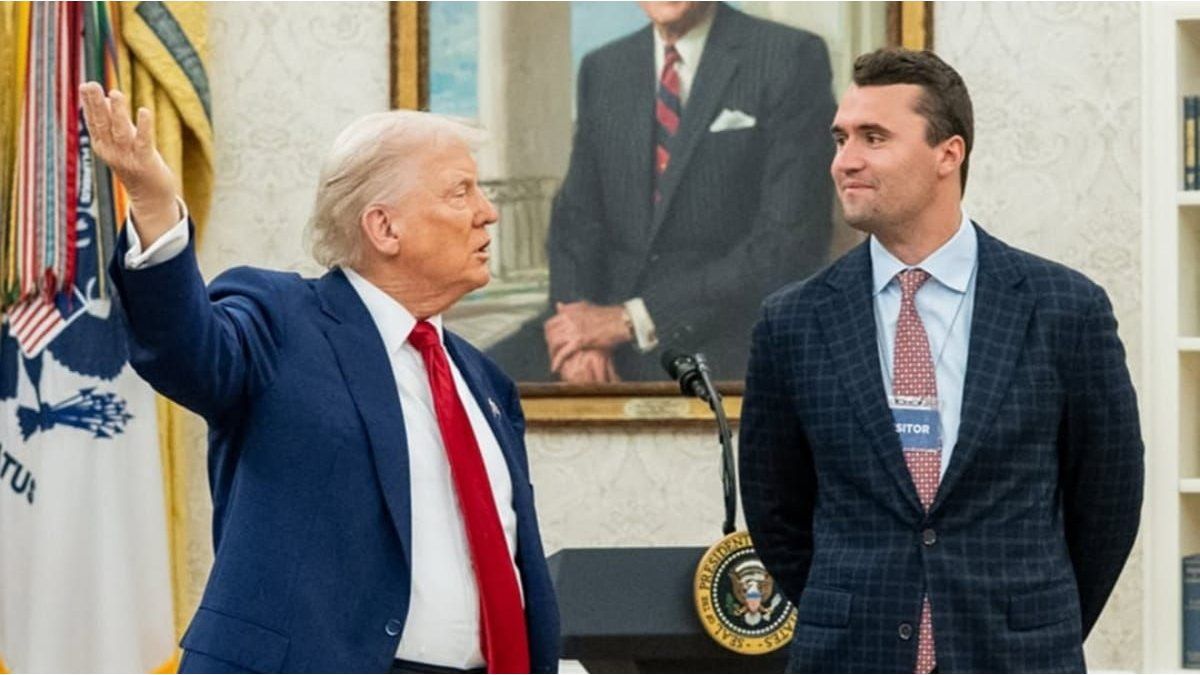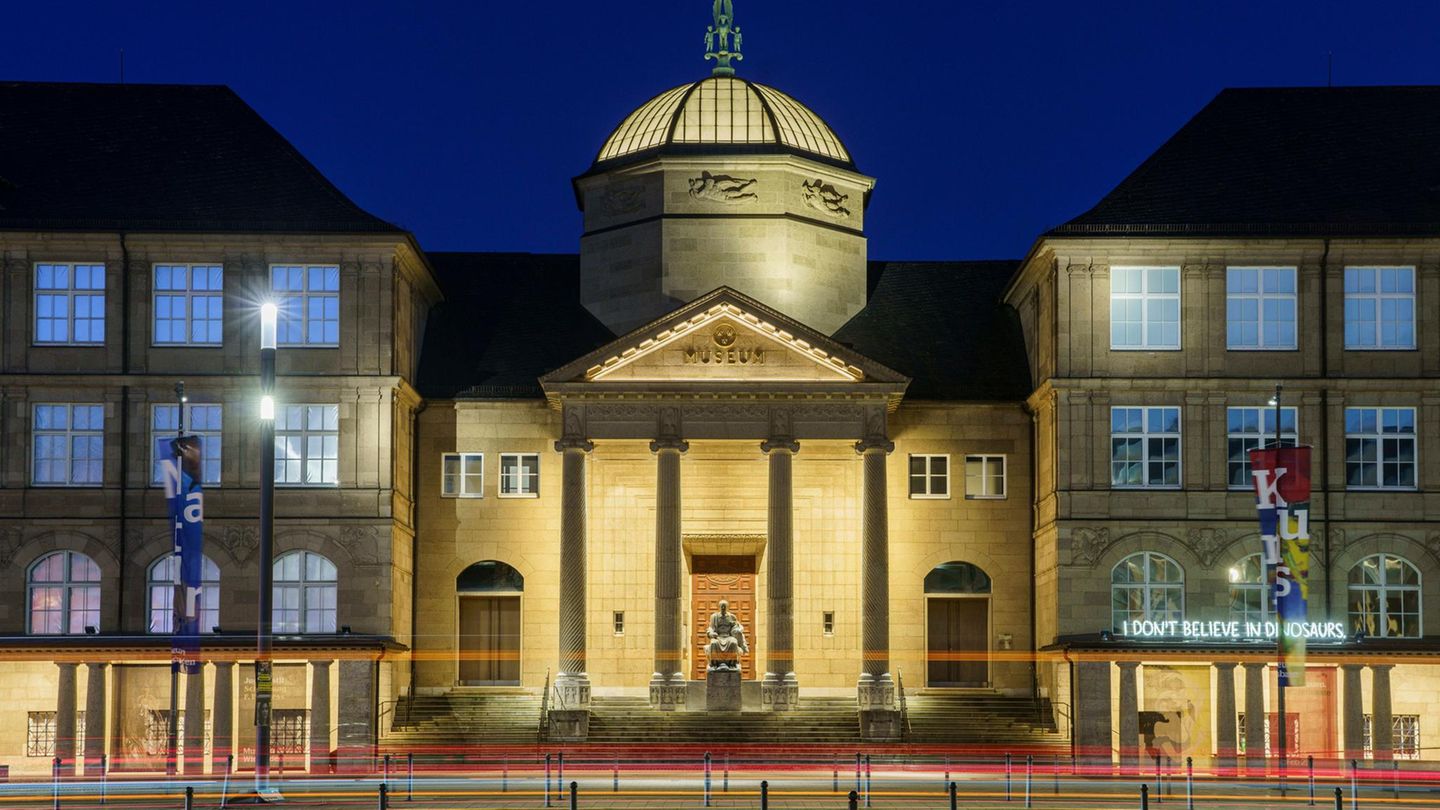“If we are one of the most important theater capitals, it is because for many years there were cultural policies that are being extinguished today,” points out Juan Tupac Soler, who stars “The theory of desiccant”, of Julieta Otero, with performances by Ana Celentano, Julia Di Ciocco and Raúl Antonio Fernández.
The play takes place in 1986 in La Boca, in an incipient democracy with the Divorce Law as a backdrop. The text written and directed by Knoll It confronts a married couple of writers with a rocker and a famous writer. What begins as a friendly dinner sets off a spiral of jealousy and paranoia. It can be seen on Saturdays at 8 p.m. at El Medio Kairós, El Salvador 4530. We spoke with Tupac Soler.
IMG_8774.jpg
The cast with Julieta Otero, author and director.
Journalist: What period airs appear and what does the context of the ’80s contribute to the story?
Juan Tupac Soler: The aesthetics are visible, the scenery, the way of speaking. It adds a lot that we are artists and writers from that time and not current ones when things can be resolved via cell phone or WhatsApp. Furthermore, the emotional and loving bonds are different from before, no matter how progressive or deconstructed one was in the ’80s, the relationships were monogamous. My character is jealous, it even generates a toxic relationship, and it was accepted that it was that way. Today we bond differently, before it was marriage, the man over the woman, and there is a game with the Divorce Law that came out at that time.
Q: What is your “loser” writer character like and the contrast with the successful writer?
JTS: My character is the writer who doesn’t sell, there is a strong contrast with the successful one who comes to my house and puts me in the place of the unsuccessful one. My character feels off and far from what the other achieves. I begin to feel that this success is in all aspects of his life and he has weapons of seduction that leave me more outside, it generates doubts, conflicts, there is a constant struggle of egos. I start doing a series of things to get back at him and the night goes off the rails.
LR-8360-2.jpg

Q: How was the installation worked?
JTS: We work on three fronts, which means that we are in a kind of three-camera shooting where the viewer has to perceive what is happening. This generates circulation of bodies and action. There is no fourth wall, it’s like being on a scene situation level all the time. We feel watched as if the viewer were a neighbor. The spatiality of the audience makes us find a very interesting way of being on stage. The work has a lot of musicality and play of situation, there is a play with the sound because while dinner is going on it is raining outside. The text is realistic, there are works that do not resist realism but in this case it is key that the work is carried out from pure realism. We really eat and drink. The audience is in an immersive experience.
Q: What other topics are addressed?
JTS: Human bonds, couples, relationships, what happens with monogamous bonds, with lovers, the world of writing, authors, masculinity, violence. It questions what success, friendship, and love are. The time is an excuse and marital and relationship conflicts appear, how the successful can be very unsuccessful or vice versa. Patriarchal violence was not deconstructed like it is today. The play is a dinner with a toxic person but in that context it could not be named. The author laughs at the pathetic, the tragic and the sad and adds humor to it.
Q: What is it like doing independent theater?
JTS: It is a question of faith, it is a place to find footing in a context that is collapsing. We are a group of friends and there is some resistance and love, of wanting to be part of it. It is very difficult to do theater today, we are very precarious, we do it as best we can, taking money and time from where we can, with an uncertain future. We don’t know if the public will be able to come, we think a lot about how much to charge for admission, we try to make it easier for people to see it, but just as I always find in independent theater an anchoring place to stand on. It is a moment where you have to exert strength, resist, create. This is a co-production with Kairós, which gave us its space to rehearse from day one.
Q: How do you see theater and culture?
JTS: In a tailspin, bad. Our country has incredible theatrical and cultural strength that is valued internationally. There is less and less horizon in terms of cultural politics, even so, there are many of us who fight but I am afraid that we will become exhausted in this fight because we have no network to protect us. The State does not help, culture is in the hands of the artists we try to follow. There is a lot to solve, health, education. There is no certainty about the future but we must try to keep this alive. Culture makes work, the memory of a country, and it must be maintained.
Source: Ambito
I am Pierce Boyd, a driven and ambitious professional working in the news industry. I have been writing for 24 Hours Worlds for over five years, specializing in sports section coverage. During my tenure at the publication, I have built an impressive portfolio of articles that has earned me a reputation as an experienced journalist and content creator.




